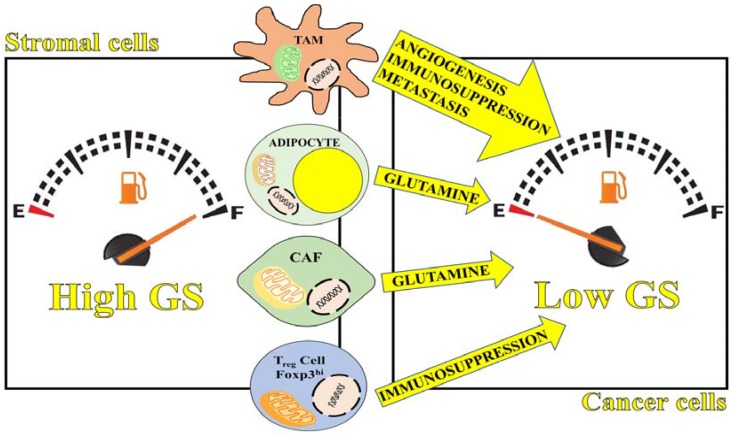Figure 2.
GS expression in cancer versus tumor microenvironment (TME) cells. Reduced ability to synthesize GS, displayed by some cancer cells, might significantly modify the composition of the extracellular milieu in terms of nutrients availability (such as glutamine). Based on the evidence that starvation increases GS levels (by means of forkhead box O3 (FOXO3A) and post-translational protein stabilization), glutamine depletion induced by glutamine dependent-cancer cells might trigger GS expression in cancer associated fibroblasts (CAFs), macrophages, adipocytes and T cells. In these cells glutamine synthesis is known to mediate a metabolic and functional reprogramming. In this way, the inability to synthesize glutamine (reduced GS expression) displayed by some cancer cells might be one of the elements capable of inducing a metabolic pressure on the TME, eventually reprogramming CAFs, adipocytes and immune cell function toward a protumoral phenotype. TAM: tumor-associated macrophages; Treg: Regulatory T cells.

